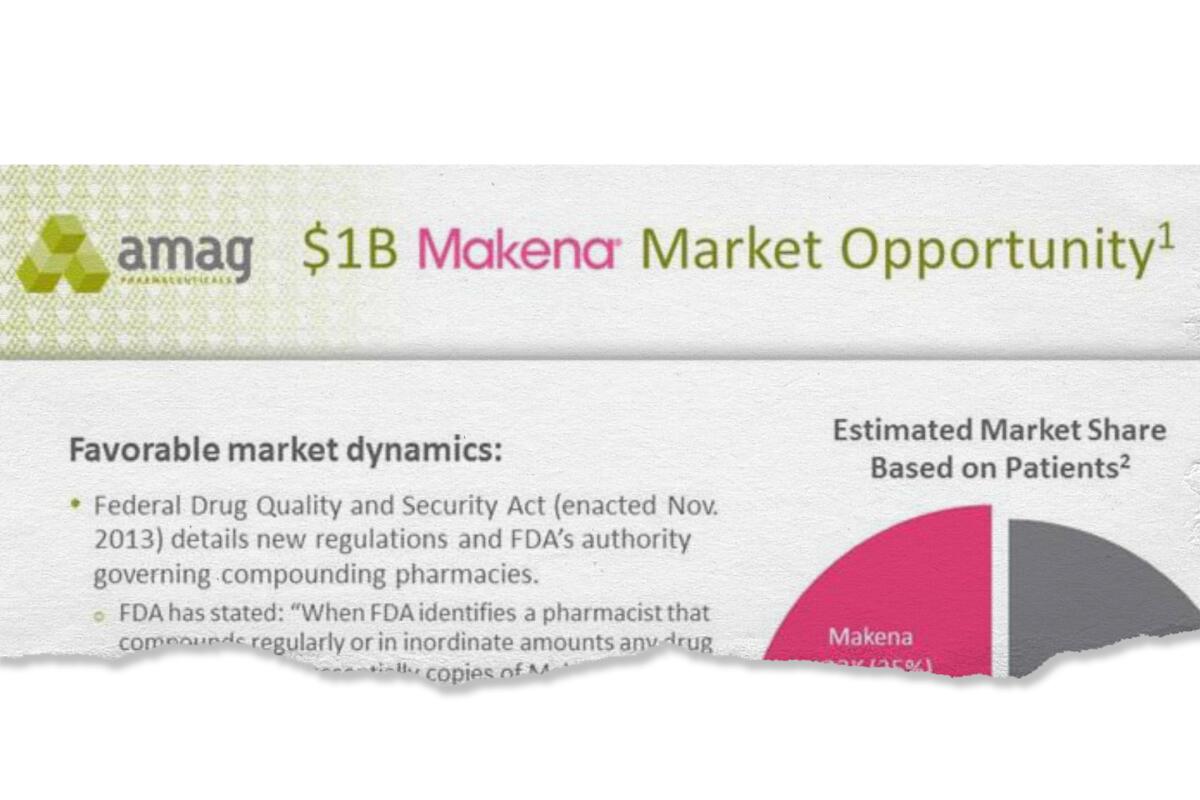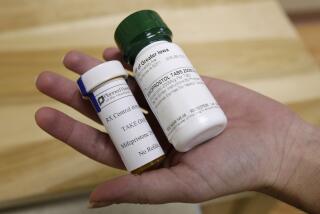FDA pulls only drug for preterm births, saying it has no benefit

The Food and Drug Administration on Thursday ordered the immediate withdrawal of the only drug meant to prevent preterm birth, saying it’s ineffective and risky for pregnant women.
“Effective today, Makena and its generics are no longer approved and cannot lawfully be distributed in interstate commerce,” the FDA said in a release.
Doctors and pharmacies still have limited supplies of the drug, which is given as a weekly shot to women at risk of early birth. But the agency urged doctors to proceed carefully in deciding whether to continue to provide the injections given regulators’ conclusion that it can’t help extend pregnancies.
The Times detailed in a February 2022 investigation how Covis Pharma and the companies that previously owned the rights to Makena profited by taking a cheap, decades-old medicine — a synthetic version of the hormone progesterone — with questionable effectiveness and safety and securing FDA authorization for its use.
Makena has been shown to cause hypertension, depression and other health problems. The FDA says that the drug’s possible long-term adverse effects on women and their children are still unknown.
The FDA’s order comes more than two years after the agency first asked Covis, a Luxembourg company owned by private equity firm Apollo Global Management, to pull the drug after a study showed it did not stop preterm birth. Black women are at highest risk of the devastating condition, which is a leading cause of infant deaths.
Covis had refused and continued to earn millions of dollars from the drug as the FDA completed a lengthy process allowed by regulations, which included a hearing in October. A committee of obstetricians and other experts voted 14 to 1 at the hearing that Makena’s sales should end.
Last month, Covis said it had agreed to voluntarily withdraw Makena, but proposed that women be allowed to finish their treatment of the shots, which can last as long as 21 weeks. On Thursday, the FDA denied that request.
“It is tragic that the scientific research and medical communities have not yet found a treatment shown to be effective in preventing preterm birth and improving neonatal outcomes — particularly in light of the fact that this serious condition has a disparate impact on communities of color, especially Black women,” said Robert Califf, the FDA commissioner, in a statement.
But exposing patients to risks of an ineffective treatment, he said, was not a solution.
More to Read
Inside the business of entertainment
The Wide Shot brings you news, analysis and insights on everything from streaming wars to production — and what it all means for the future.
You may occasionally receive promotional content from the Los Angeles Times.











